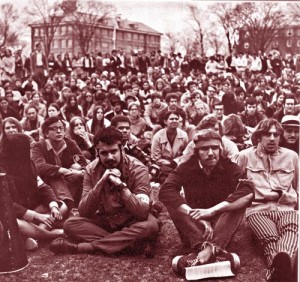
Mervyn, we are obviously not going to agree, since I suspect we are beginning from very different points and proceeding with very different assumptions. But here are a couple of specific points in response to your post.
Freud acknowledged the role of desire in literature; indeed, it seems to be the motivating force for the creative imagination. For him the ego is “the hero of every daydream and every novel.” This is the place where unsatisfied desires can be fulfilled.
Second, I recognize that of course there are radical currents in Frye’s thinking. But he resembles Freud in his “conservative” response to the student protest movements of the 1960s and early 1970s. The “disobedience, chaos, [and] disorder” that prevailed on some campuses, encouraged by numerous faculty members, struck him as a betrayal of the true mission of the university. Ironically, Blake figured prominently in the pantheon of writers admired by student radicals (as did Freud, which, as you mention, Frye pointed out).
He sometimes described himself–perhaps to provoke his “cultured despisers”–as a “bourgeois liberal.”
